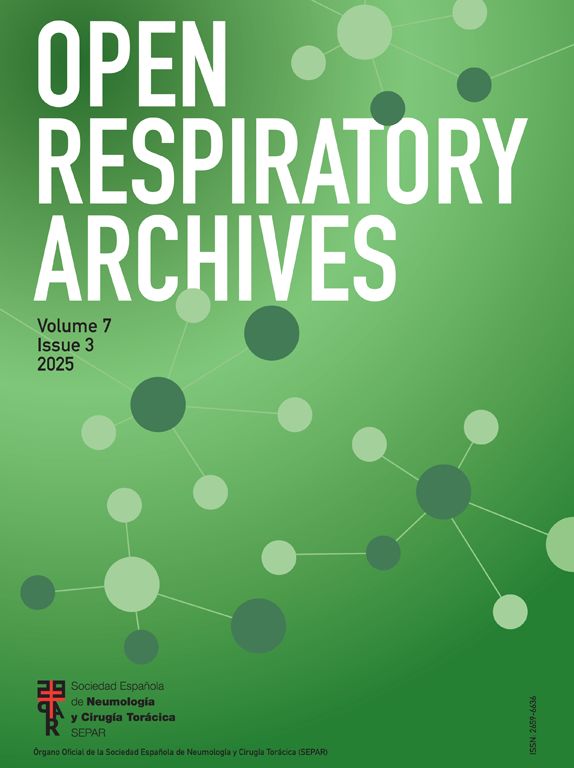A 89-year-old woman presenting with dry cough and fever. COVID-19 pneumonia was confirmed by RT-PCR test and Chest X-ray (Fig. 1A).
(A) Chest X-ray with single anteroposterior projection, performed the admission day, showed bilateral diffuse opacities secondary to COVID-19 pneumonia (white arrows). (B) Transverse CT images with lung window shows multiples diffuse parenchymal ground glass opacities and consolidations, typical of COVID-19 pneumonia (blue arrows). (C) Transverse CT images with mediastinal window shows posterior bilateral pleural effusion (red arrows) and bilateral heterogeneous lung consolidations (white arrows). Left central consolidation shows low contrast uptake (yellow arrow). (D) Iodine map images confirmed a central area of decreased perfusion (yellow arrow) in the left superior lobe, compatible with pulmonary superinfection confirmed later with bronchoalveolar lavage (Pseudomonas Aeruginosa).
During the hospitalization the patient showed a progressive respiratory worsening, fever and dyspnoea. On the 14th day of hospitalization a CT pulmonary angiography (CTPA) was performed. CT showed the presence of multiple bilaterally ground glass opacities secondary to COVID-19 pneumonia (1B). We also observed atypical CT findings such as bilateral pleural effusion and a central left hypodense consolidation, affecting the left upper lobe and the superior lingula, suspected of bacterial superinfection (Fig. 1C). A subsequent Bronchoalveolar lavage (BAL) confirmed a bacterial superinfection by Pseudomonas Aeruginosa.
Bacterial superinfection concomitant to COVID-19 infection has been scarcely and irregularly reported (3.2–15%) in different case series of COVID-19 published to date.1,2
Central or lobar consolidations with hipoperfusion evidenced by dual energy CT pulmonary angiography, associated with centrilobular nodules, represent CT findings suspected of superinfection.
As we know this is the first report that included dual-energy CT pulmonary angiography features description.
It is essential to recognize atypical CT patterns in COVID-19 patients to quickly suggest superinfection that represents a frequent and treatable complication.







